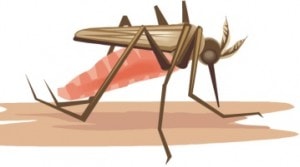 Southborough – The Massachusetts Department of Public Health (DPH) this past week confirmed the finding of EEE and the West Nile Virus infected mosquitoes in Westborough and Shrewsbury. Due to the geographically closeness to these communities, Southborough is strongly encouraging residents to increase their knowledge and understanding of EEE and the West Nile Virus (Facts, Signs & Symptoms, Prevention and Treatment).
Southborough – The Massachusetts Department of Public Health (DPH) this past week confirmed the finding of EEE and the West Nile Virus infected mosquitoes in Westborough and Shrewsbury. Due to the geographically closeness to these communities, Southborough is strongly encouraging residents to increase their knowledge and understanding of EEE and the West Nile Virus (Facts, Signs & Symptoms, Prevention and Treatment).
While some of the factual data may seem low, remember it only takes one infected mosquito bite to infect you. Factual Information from the Centers for Disease Control and Prevention (CDC):
The West Nile Virus:
1. Only 4 out of 5 people infected with the West Nile Virus will develop any illness.
2. Throughout New England in 2011, only 17 people were infected with the West Nile Virus.
3. West Nile is a virus and as such, will develop slowly.? Duration is mostly based of a person's health condition
4. The Incubation period can be from 2 to 15 days and symptoms can last from a few days to several weeks.
5. Public health officials urge people to be aware of the early stage signs and symptoms and to immediately get help before the virus progresses.
6. Higher risk populations include: Children under age 6, Adults over age 50, and those with a weakened immunity system.
Eastern equine encephalitis (EEE):
7. Annually, only 5 – 10 are infected with EEE throughout the United States
8. Approximately 20 percent of persons infected might develop mild symptoms including fever, headache, tiredness, and body aches. A skin rash on the trunk of the body and swollen lymph glands might also occur.
9. Only 1 in 150 will develop severe reactions which include headache, high fever, neck stiffness, stupor, disorientation, coma, tremors, convulsions, muscle weakness, and paralysis.
10. Public health officials urge people to be aware of the early stage signs and symptoms and to immediately get help before the disease progresses.
11. People under the age of 6, adults over the age of 50, and those with a weakened immunity system, are at the highest risk.
SEMA strongly recommends that residents take precautions when outdoors and limit outside activities during dusk and in swampy/wooded areas, common times and environments with mosquito activity. Specific preventive measures include:
1. Applying repellents that contain DEET on those for whom it is safe. Read product labels carefully for restrictions;
2. Whenever possible, avoid outdoor activities at dawn and dusk;
3. Rid your surroundings of any standing water (tires, pools, barrels, etc.);
4. Use mosquito nets on baby carriages;
5. Make sure that all your screens are in good repair and that all openings to the outside are equipped with screens or kept closed;
6. Wear long sleeves and pants (light colors are better than dark colors or black);
7. Do not allow standing water to remain in small pools and outdoor containers.
To learn more about the health effects of humans, prevention and updated confirmed infected areas/communities on Eastern Equine Encephalitis (EEE) and/or West Nile virus check-out the following websites:
CDC: the West Nile Virus
http://www.cdc.gov/ncidod/dvbid/westnile/wnv_factsheet.htm
CDC: EEE
http://www.cdc.gov/EasternEquineEncephalitis/gen/qa.html
Massachusetts Department of Public Health:
http://www.mass.gov/eohhs/gov/departments/dph/
















